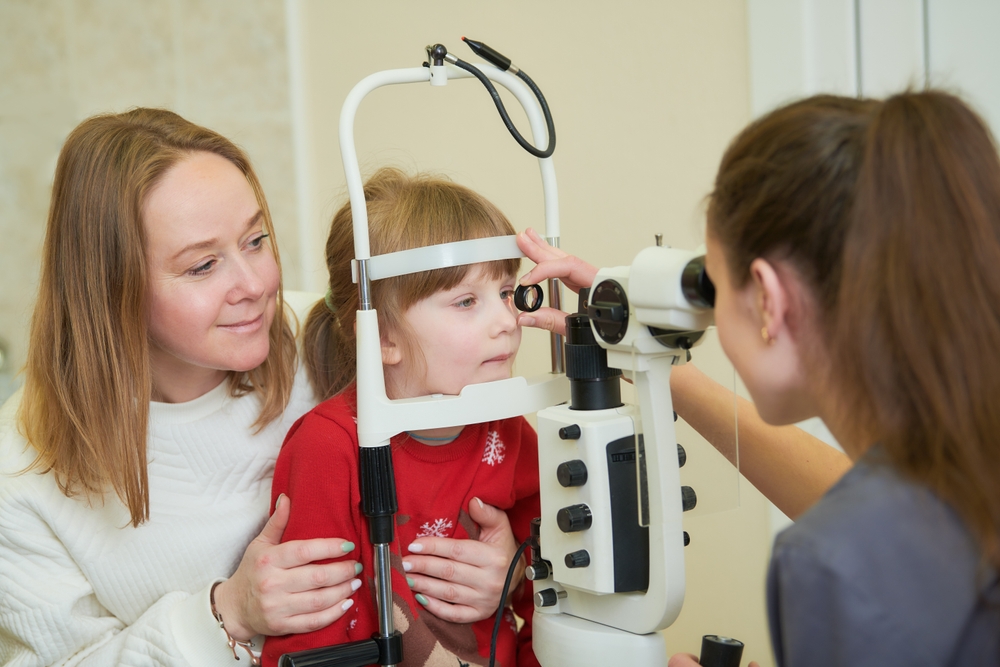
Signs Your Child Needs a Pediatric Eye Exam
As parents, we do everything in our power to ensure our children are healthy and thriving, but sometimes vision problems can go unnoticed. A child may not always know they have vision issues, and it can be challenging to recognize the signs as a parent. Regular pediatric eye exams are essential for early detection and treatment of any eye-related issues. But how do you know when your child needs a pediatric eye exam? Here are some key signs to look for:
Frequent Squinting
If you notice your child frequently squinting, it could be a sign that they are having trouble seeing clearly. Squinting is often an unconscious attempt to improve focus and vision by reducing the amount of light entering the eyes, especially if your child is nearsighted or farsighted.
Sitting Too Close to the TV or Holding Devices Close to Their Face
When children have difficulty seeing, they may sit unusually close to the television or hold books, tablets, or phones very close to their face. This behavior may indicate they have trouble seeing objects at a distance, which can be a sign of myopia (nearsightedness).
Frequent Eye Rubbing
Rubbing eyes can be a common reaction to tiredness or irritation. However, if your child is rubbing their eyes frequently even when they are not tired, it may be a sign of eye strain, poor vision, or other underlying issues such as allergies or dryness.
Complaints of Headaches or Eye Pain
Children may not always express discomfort related to their vision, but if your child frequently complains of headaches or eye pain, especially after reading or spending time in front of screens, it could be a sign of eye strain or an undiagnosed vision problem.
Trouble with Schoolwork or Reading
Vision problems can significantly impact a child’s ability to learn. If your child is having trouble concentrating, struggling to read, or falling behind in school, it may be due to difficulty seeing the board, reading books, or focusing on close-up work. A comprehensive pediatric eye exam can help rule out vision-related learning issues.
Covering One Eye or Tilting Their Head
If your child frequently covers one eye or tilts their head when trying to focus on something, this could be a sign of amblyopia (lazy eye) or strabismus (crossed eyes). These conditions can affect how the eyes work together and may require early treatment to prevent long-term vision problems.
Sensitivity to Light
Excessive sensitivity to light (photophobia) could indicate an underlying eye condition, such as corneal abrasion or other issues affecting the eye’s ability to handle light. If your child complains about light hurting their eyes, it's essential to have them checked by an eye care professional.
Difficulty with Hand-Eye Coordination
Vision plays a crucial role in developing motor skills. If your child struggles with hand-eye coordination during activities like catching a ball, drawing, or playing sports, it could be due to uncorrected vision problems. Children may not recognize that their vision is to blame for these difficulties, so it’s important to schedule an exam if you notice these issues.
Book a Your Child’s Eye Exam with Marana Eye Care Today
Pediatric eye exams are about more than just ensuring your child can see clearly. They also help detect vision problems early, which can prevent learning difficulties, eye strain, and long-term vision impairment. Early detection of issues like lazy eye, myopia, and other conditions can significantly improve the chances of successful treatment. At Marana Eye Care, we offer pediatric eye care, and we are here to help your child achieve optimal eye health and vision.
Contact Marana Eye Care to schedule a comprehensive pediatric eye exam to ensure their optimal vision and eye health. Visit our office in Tucson, Arizona, or call (520) 337-2300 to book an appointment today.











